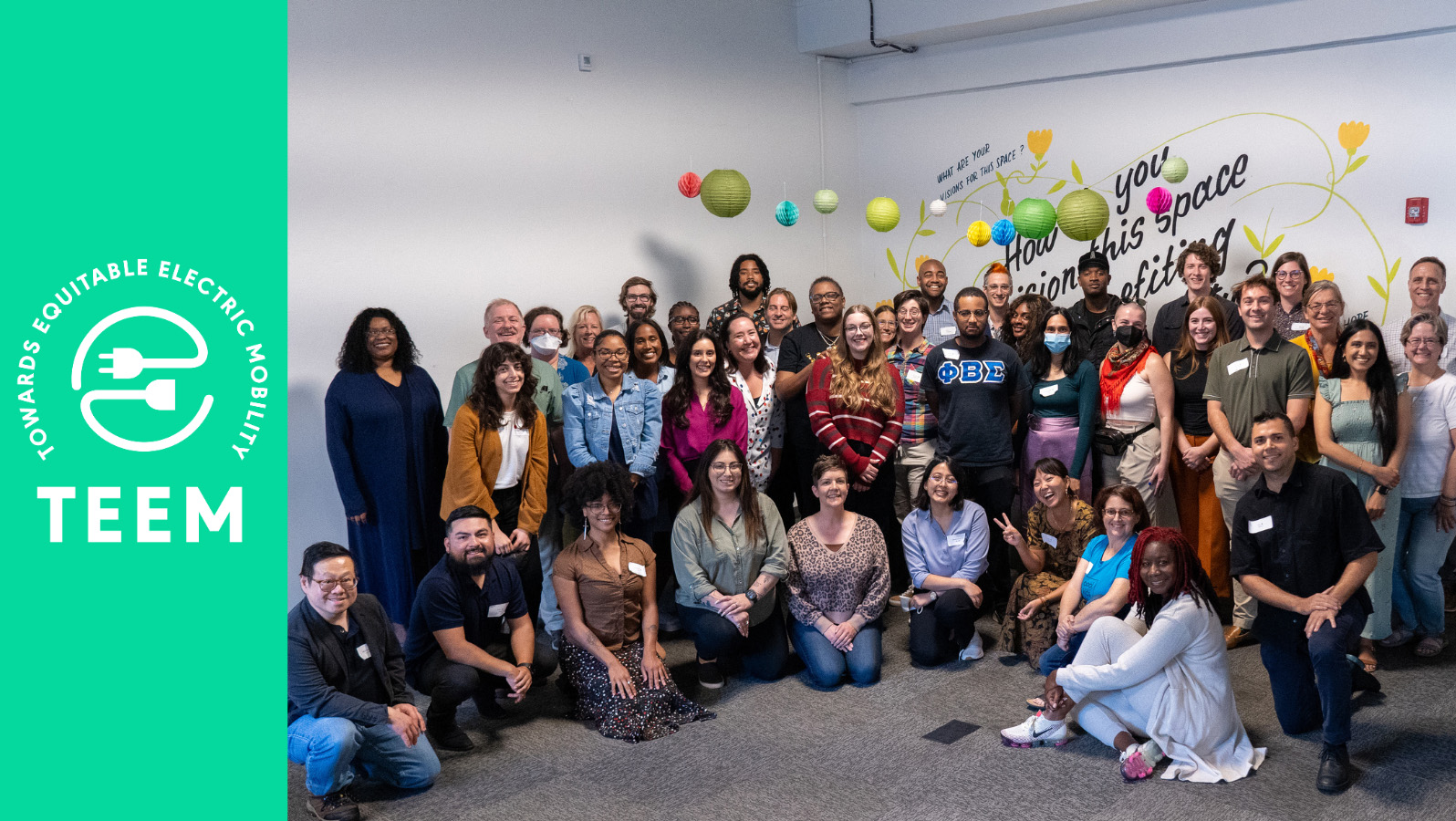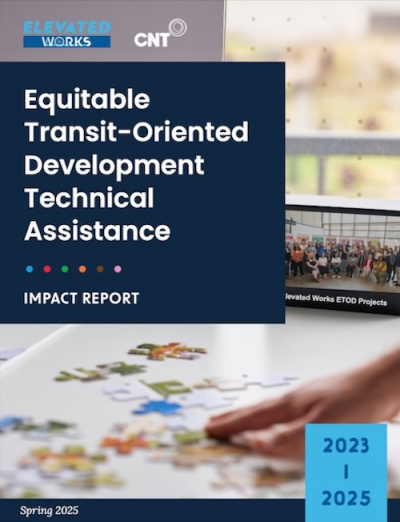
Imagine tomorrow, all vehicles in the world suddenly became battery powered. Would that achieve all our climate and environmental justice goals? Not exactly. What will help close the gap between equity and climate goals is an electrification transition that follows the principles of the Towards Equitable Eletric Mobility (TEEM) platform.
Or, as one TEEM leader stated, “If you aren’t looking for the intersection, you aren’t going to find the solution.”
TEEM Platform Overview
Towards Equitable Electric Mobility (TEEM) consists of a peer-to-peer community of advocates to share policy goals, build capacity, and develop a mutual commitment towards advancing racial equity in electric mobility and climate change goals.
Electric Vehicle Resource Library
Since 2021, CNT has been a member of TEEM, a national coalition led by the Greenlining Institute and Forth, whose goal is to approach the transportation electrification movement with a racial and environmental justice lens.
The TEEM cohort includes organizations in the states of Colorado, Illinois, Michigan, North Carolina, and Virginia. The TEEM Illinois cohort includes CNT, Active Transportation Alliance, Bronzeville Community Development Partnership, Elevate, and Respiratory Health Association (along with past partners - Warehouse Workers for Justice).
In October 2023, CNT staff joined the national TEEM cohort for its Annual Convening in Oakland, where the TEEM Platform was solidified after months of collaborative virtual meetings. One of the main themes that came up was the need for equitable electrification implementation to have a holistic, community-centered approach to avoid getting stuck in the same inequitable patterns of disinvestment.
Transportation electrification is rising to the top of the list as one method to lower carbon emissions, with unprecedented amounts of federal funding available for states and municipalities to invest in electric vehicle (EV) charging stations, philanthropic funders supporting advocacy campaigns, and private companies shifting to producing electric vehicles. With this influx of funding, it is imperative that we center a perspective of racial equity and justice and ensure that the benefits and burdens of transportation electrification are meaningfully discussed with our governments.
Just green transition
So, with all the buzz around transportation electrification, how do we begin to navigate a truly equitable approach to electrification, one that centers historically disinvested communities, and works to advance a just “green” transition?
The TEEM Platform offers principles and implementation recommendations for federal, state, and local transportation departments, transit agencies, elected officials, and other decision-makers to integrate equity and sustainability into transportation systems across the country. The recommendations are as follows:
- Equity & Justice: To meet Justice40 requirements, agencies must invest in outreach, public education, community engagement and shared decision-making.
- Emissions Reductions: We need to increase access to practical alternatives to driving and electrify all modes of transportation to reduce emissions by 52% by 2030.
- Affordable Access for All: Our nation’s transportation investments must provide reliable alternatives to driving and improve the affordability of sustainable mobility options.
- Health & Safety: Transportation investments need to substantively and rapidly decrease harm from car crashes and air pollution. Investments in the supply chain (like mining) must also direct benefits to impacted communities and avoid causing or exacerbating harm.
- Wealth Building: Government contracts, investments and jobs should be allocated through a transparent, accountable, and equitable process that mitigates racial, urban-rural divide and, economic inequities.
The full platform can be read on the Greenlining Institute website. The goal of the TEEM platform is to provide guidance to governments on how to implement equitable transportation electrification policy.
CNT’s work with TEEM exemplifies our commitment to improving our understanding of the state of transportation electrification and how funding and policy will impact environmental justice communities’ ability to adapt and thrive in the ongoing transition to electric vehicles.
CNT also remains dedicated to ensuring that capacity building of communities is at the forefront when discussing the transition to electric vehicles, so that community leaders have the knowledge and understanding of electric vehicles to make their own choices on the best approaches to this transition.





 Strengthening Transit Through Community Partnerships
Strengthening Transit Through Community Partnerships